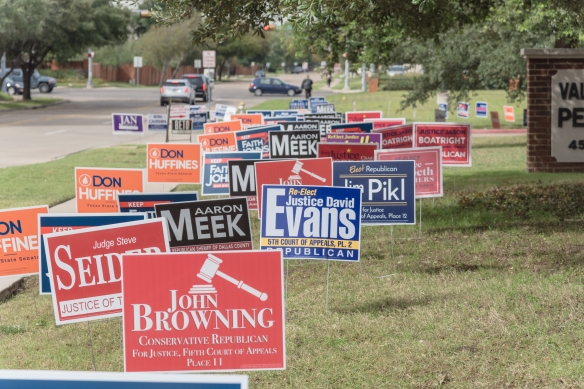
As the dust settles on the contentious midterm elections, with a myriad of people feeling excited/vindicated/emboldened/sad/discouraged/disillusioned and a whole host of emotions in between, I am left to wonder… How did we get here?
What prompted civility to be tossed aside as a naïve aspiration? When did a willingness to listen to a diversity of ideas — demonstrated time and again as a leadership strength — somehow get cast as weak or waffling? How did we allow our perception of “truth” to get so distorted that fact checking has become a cottage industry? And perhaps the most important question of all, what are we — who aspire to be leaders —doing about it?
A long-time community leader in the town I’m from was known for saying, “I wondered why somebody didn’t do something. And then I realized that I was somebody.” So what can we as leaders — as somebodies — do about the contentious culture that has taken hold in our country? Sure, you can point a finger at individuals or groups you believe “started it” (why does that sound like a 10-year-old response to a parent asking what happened?). Regardless of how we got here, the question remains… what should a leader do about it?
In the book Crediblity: How Leaders Gain and Lose it, Why People Demand It, authors Kouzes and Posner have drawn on 30 years of research to determine that the four top traits of admired leaders — which are consistent over time and across geography — are: honest, forward-looking, inspiring and competent. These mirror the key sources of credibility: trustworthiness, expertise and dynamism. If, as Kouzes and Posner contend, credibility is the foundation of effective leadership, then those of us who would hope to influence the actions of others need to focus daily on being honest, competent and inspiring. As Gandhi said, “Be the change you wish to see in the world.”
Being the change means engaging in “somebody leadership”… not just complaining about “the way things are” but taking steps to make them different. It means being honest, competent and inspiring at the highest levels, even when others are using a lower bar. It means modeling the behavior you expect from others… no excuses, no exceptions. It takes a strong leader — a somebody leader — to be kind, curious and respectful, not because someone else “deserves” it, but because it is a reflection on you and the change you seek.
It is easy to point a finger “out there” for the toxic environment we are experiencing. If we want to effect change, however, the place to start is “in here”.
Want somebody to do something? You are somebody.
